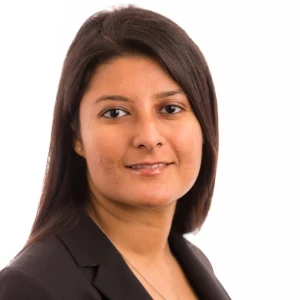Hi all
I've recently been invited to the final round interviews with McKinsey (I'll have the interview next week). Does anyone know if the interviews are any different from 1st round and tips for building a rapport with more senior interviewers?
Hi all
I've recently been invited to the final round interviews with McKinsey (I'll have the interview next week). Does anyone know if the interviews are any different from 1st round and tips for building a rapport with more senior interviewers?


Hi there,
In terms of what to expect in the final, the structure of the rounds is the same (fit + case+ your questions); however, in finals there is usually more emphasis on communication and fit.
Specifically, the main differences you may find in a final round with partners is that at that stage they:
So in order to prepare I would concentrate on the following:
In terms of communication tips, you can consider the following:
Best,
Francesco


Congratulations!
In reality, you need to be prepared for anything and everything. But here are some tips that may help.
Fixing your Weaknesses
They have made a note of areas you showed strengths/weaknesses in. Look for them to test you weaknesses to see if they're 1) A fluk or 2) Workable.
So, focus on improving in areas you know you underperformed in.
Fit/Behavioral
You should be more prepared for a pretty in-depth fit interview. I highly recommend you expect "loose" or "random" questions and practice this scenario with a coach. They are less likely to just ask you 20 "tell me about a time" questions. They may have a bit more of a chat, ask you to brainstorm, ask things like "How would you setup x type of project", etc. etc. You need to prepare to be flexible here!
Broader topics/case variability
In terms of being MECE, try out a wide range of "unique" questions to test your MECE structure!
For example, if you were a farmer and had to pick between buying a cow, chicken, or pig, how would you think about which to buy?
Or, if you were a thief, which store between a, b, c would you rob?
Practice breaking these down into MECE structures so that the concept really hits home.

Hi. For which office are you applying ? 2nd round tips depend on the region


Hi,
I confirm the 2 rounds are similar and each interview will be structured in 3 parts:
- Personal Experience Interview: fit and CV questions to assess your personal impact, leadership skills, and entrepreneurial spirit
- Case Interview: typical business case to evaluate your structure in approaching problems, problem-solving skills, and business sense
- Your final questions to the interviewers
Feel free to text me for some tips about the preparation. I have supported hundreds of candidates in crafting impactful stories and structuring business cases.
Hope it helps,
Antonello

Nice one and congrats! Almost there.
Have a look at these threads too for some great tips:
Good luck!

Hi,
As for the cases - Partners and Directors have their own favorite cases and may even want you to lead the case. The key difference:
It may seem to you that these 2 types of cases are different, however, the interviewer-led type is just a simplified version of the interviewee-led case. My advice is to always prepare in the interviewee-led format so that you could solve both easily.
At the final round, I would expect a bit more structured and demanding approach to the fit part. The partners in the last round are more experienced and they will challenge every single detail of your story. So make sure that you have a couple of backup stories. Thus:
1) Make sure that you've prepared everything: A story about yourself, motivational questions and the main FIT stories. Also, don't forget about your questions to the interviewer - you'd rather have an interesting conversation and score some point instead of a simple Q&A session
2) Then go through each story and think of the additional questions the interviewer may ask. It’s important since additional questions will take up to 50% of the interview. Try to remember the main details and facts and make sure that you know how to explain the key concepts quickly. Test your stories with your friends, ideally consultants, and ask for their feedback. There can be multiple groups of additional questions:
3) work on 3-6 backup stories. During your interviews, you can then use these stories or adapt these stories to the additional questions your interviewer asks you.
You may be interested, why you need to prepare several stories for each question? At the end of the day, it's not that easy to come up with all of these stories. I've answered here: https://www.preplounge.com/en/consulting-forum/repating-fit-interview-stories-927#a1813
4) Next step is talking to consultants. I recommend doing a couple of mock interviews, both case+fit. You can connect with consultants via friends, company events or even LinkedIn. Consultants are entirely opened to share their experiences, but the biggest problem will be the lack of time. Sometimes you’ll need to send a kind reminder to your request, but it pays off.
Best

Hello!
Congratulations!
The structure of the interview will be same, however, normally it includes a lot about the personal fit as well as testing your individual behaviour in different stress situations including a role game.
- Alternatively it can also include some cases, particularly more market-sizing one with difficult questions.
- Covid-related questions could be also included.
My general recommendation for you would be to gather as much information as possible about this partner to prepare your customized questions for the interview.
Practice different interview styles with high pressure to become more emotionally resilient.
Do you need any further help or specific advice?
GB

Hello!
Congrats on making it to the final round :)
The overall format (business case + FIT is the same)
In terms of cases, you can find them more "unstructured" or free riding, given that they are conducted by highly experienced people who not always follow the "guidelines".
FIT is perhaps what changes most, since it gets longer and more important. If you want to deep dive on the topic, the "Integrated FIT guide for MBB" has been recently published in PrepLounge´s shop (https://www.preplounge.com/en/shop/tests-2/integrated-fit-guide-for-mbb-34)
It provides an end-to-end preparation for all three MBB interviews, tackling each firms particularities and combining key concepts review and a hands-on methodology. Following the book, the candidate will prepare his/her stories by practicing with over 50 real questions and leveraging special frameworks and worksheets that guide step-by-step, developed by the author and her experience as a Master in Management professor and coach. Finally, as further guidance, the guide encompasses over 20 examples from real candidates.
Furthermore, you can find 3 free cases in the PrepL case regarding FIT preparation:
Feel free to PM me for disccount codes for the Integrated FIT Guide, since we still have some left from the launch!













